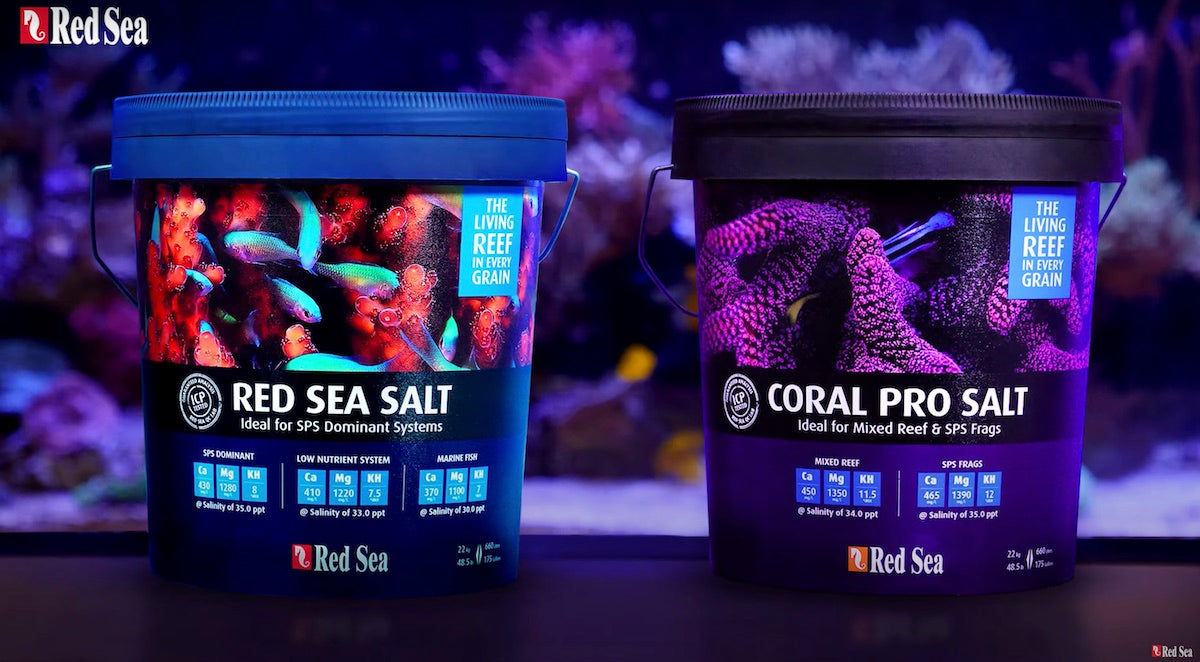Collection: Marine Salt
Maintain the perfect marine environment with our range of marine & reef aquarium salts. Whether you’re topping up, doing water changes, or running a full reef system, our selection of premium marine salts ensures stable salinity, balanced minerals, and healthy conditions for corals, fish and invertebrates. Explore blends from trusted brands and find the ideal salt for your tank
Maintain the perfect marine environment with our range of marine & reef aquarium salts. Whether you’re topping up, doing water changes, or running a full reef system, our selection of premium marine salts ensures stable salinity, balanced minerals, and healthy conditions for corals, fish and invertebrates. Explore blends from trusted brands and find the ideal salt for your tank
Read more...
Marine Salt 101: Choosing the Right Salt Mix for Your Aquarium

Troubleshooting Marine Salt Problems: Cloudy Water, Alkalinity Swings & More

How to Switch Marine Salt Brands Safely (Without Crashing Your Tank)

Marine Salt 101: Choosing the Right Salt Mix for Your Aquarium

Troubleshooting Marine Salt Problems: Cloudy Water, Alkalinity Swings & More

How to Switch Marine Salt Brands Safely (Without Crashing Your Tank)
Have Questions About Marine Salt?
We Have Answers.
Get quick answers to common questions about Marine Salt
What is Marine Salt?
Why is Marine Salt important for a saltwater aquarium?
What types of Marine Salt are available at Charterhouse Aquatics?
How do I choose the right Marine Salt for my aquarium?
How do I mix Marine Salt for a saltwater aquarium?
How often should I perform water changes with Marine Salt?
Can I switch Marine Salt brands in my aquarium?
Does Marine Salt expire or go bad?
What is the difference between Marine Salt and Reef Salt?

Why Choosing the Right Marine Salt Matters
Keeping a thriving marine aquarium starts with one of the most essential elements of all — marine salt. The right salt mix does more than simply raise salinity; it replicates the complex chemistry of natural seawater by supplying crucial trace elements, minerals, and buffering compounds. These ensure stable water parameters, support biological filtration, and promote the health of corals, fish, and invertebrates alike.
Whether you’re maintaining a fish-only system or running a full reef tank, the quality and consistency of your marine salt directly influence the success of your aquarium. Poor-quality salt or inconsistent mixing can cause dangerous swings in alkalinity, calcium, and magnesium, leading to stress, disease, and stunted coral growth. That’s why choosing a trusted, high-performance salt is one of the smartest investments a marine keeper can make.
